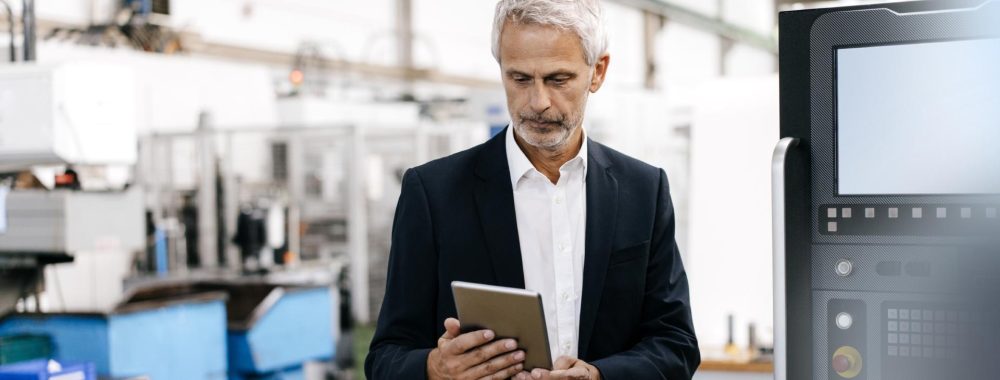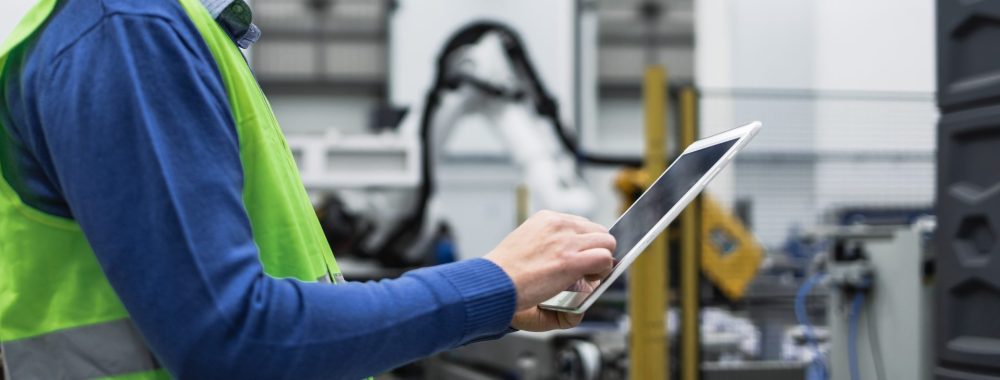The industrial sector faces new challenges and changes in the environment every day, all with limited resources, which must be exploited to the maximum in order to achieve more with less.
The emergence of new technologies based on digitalisation opens up a window of possibilities and opportunities for optimisation never before experienced in the sector, adopting the name Industry 4.0. To this end, it is essential to collect, understand and make intelligent use of the large amount of data generated in the industrial business environment: invoicing, production, procurement, human factor, energy supplies and a long etcetera.
In this digitisation of factories, Industry 4.0 uses the Industrial Internet of Things (IIoT) as a vehicle for the connection and flow of data, and it is possible to use management and control platforms that incorporate Machine Learning for the optimisation of processes based on Artificial Intelligence learning. But on this path to the future, a new approach has emerged that goes one step further, Deep Learning.
But what is Deep Learning and what are its applications in Industry 4.0? In this article we explain everything you need to know about this revolutionary system, which has enormous advantages in the automation of industrial processes and decision-making.
What is Deep Learning?
Deep Learning is part of Machine Learning, and goes one step further by evolving the field of machine learning. This discipline of Artificial Intelligence is capable of generating algorithms that learn automatically without the need for learning to be supervised by an operator, which is a huge step forward in the analysis of millions of data generated in any industrial environment.
Beyond Machine Learning
Deep Learning uses structures similar to the organisation of the nervous system through layers of processing units that act like artificial neurons. In other words, instead of organising data through equations predefined by a human, Deep Learning trains the system to learn to detect the existing characteristics of the perceived elements on its own.
The differentiating factor of this “unsupervised machine learning” is that, while machine learning relies on the quantity and quality of data provided by a human to verify patterns of action, deep learning is able to detect the quality of the data on its own without any prior configuration. Simply with the input data and the necessary training, this system can modify the networks that process the perceived information by drawing its own conclusions in a correct way.
This difference makes it a faster and more efficient system that helps to make better decisions in all industrial processes.
By working with neural networks similar to the organisation of the nervous system, Deep Learning is able to analyse unstructured data quickly and reliably, which has enormous applications in Industry 4.0.
Applications of Deep Learning in Industry 4.0
Deep Learning has many applications in Industry 4.0. This automation of industrial processes has enormous possibilities in a large number of sectors such as finance or healthcare, but also for the chemical, agri-food, ceramics, oil and gas industries, among others.
This system is currently considered to be the best data classifier, which makes it a very interesting technology to implement in factories seeking to differentiate themselves from their competitors.
Some of the applications of Deep Learning in Industry 4.0 are:
- Recognising new parts within the production system. Deep Learning can detect parts that have not been perceived before. Thanks to artificial neuron networks, the system learns from those images that it already knows, being able to detect that it is a new part without having to indicate it.
- Intelligent fault detection. Once this system learns, it is able to recognise defects in size or shape without having to categorise all the possible variables. Through Deep Learning, the detection of manufacturing defects is fully automated.
- Secure authentication of access to facilities. Automatic biometric recognition to guarantee security in buildings, rooms with sensitive data, plant access and other areas of the facilities.
- Control of the quantity of inputs in the supply chain for the manufacture of parts, thanks to its advanced recognition system and interconnection with the production network.
Do you want to get the most out of your industrial company?
Deep Learning applications for Industry 4.0 are continuously evolving and are the key to competitive advantage and differentiation in the sector.
Nexus Integra is the integrated operations platform with Machine Learning technology that allows you to digitally transform your business, automate tasks and optimise production processes, obtaining greater efficiency and performance.
It connects all your assets and information systems, allowing you to manage all of them by sending orders to the factory, or even cross-referencing invoicing data with production. With Nexus Integra you get a 360-degree view of your business, allowing you to make confident decisions based on data.
If you are looking to be part of the new industrial paradigm, contact our specialised team.


